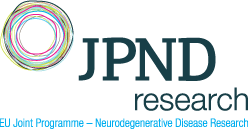K.G Jebsen partner participates in a JPND funded research grant
The challenge of neurodegenerative disease focusing on Alzheimer’s is the topic in the EU Joint Programme – Neurodegenerative Disease Research (JPND), and also the largest effort of its kind. Clive Bramham has as a partner in a currently funded project received support to study the role of two key molecular players (BDNF and Arc) in neurodegenerative disease.

Main content
K.G Jebsen partner Clive Bramham is part of an international team from Germany, Italy, France and Norway lead by Prof. Dr. Volkmar Lessmann from Otto-von-Guericke-University Magdeburg that were successful in getting funding from The EU-Joint Programme-Neurodegenerative Disease Research - JPND. ”European research projects on neurodegenerative diseases: risk and protective factors, longitudinal cohort approaches and advanced experimental models”
The project is called CircProt which is an acronym for Synaptic circuit protection in AD and HD: BDNF/TrkB and Arc signaling as rescue factors. Brain-derived neurotrophic factor (BDNF) plays a crucial role in neuronal development as well as in synaptic plasticity in the adult brain. On the other hand pathological changes in the function or efficiency of BDNF and its downstream receptor and tropomyosin-related kinase (TrkB) are often seen in neurodegenerative conditions including Huntington´s disease (HD) and Alzheimer´s disease (AD). In this project, Bramham and colleagues propose that BDNF/TrkB signaling is a gateway for controlling and ultimately treating the synaptic dysfunction in AD and HD. The protein Arc, as a master regulator of synaptic plasticity, is a promising candidate mediator’ of BDNF function. The goal of the project is to elucidate the molecular role of BDNF in AD and HD and to identify novel treatment approaches to AD and HD based on regulation of TrkB and its downstream signaling cascades.
More information about the project can be found in a recently published article at forskning.no.
As a part of the project an expert researcher on in vivo electrophysiology in rats and mice will be announced in the close future.

